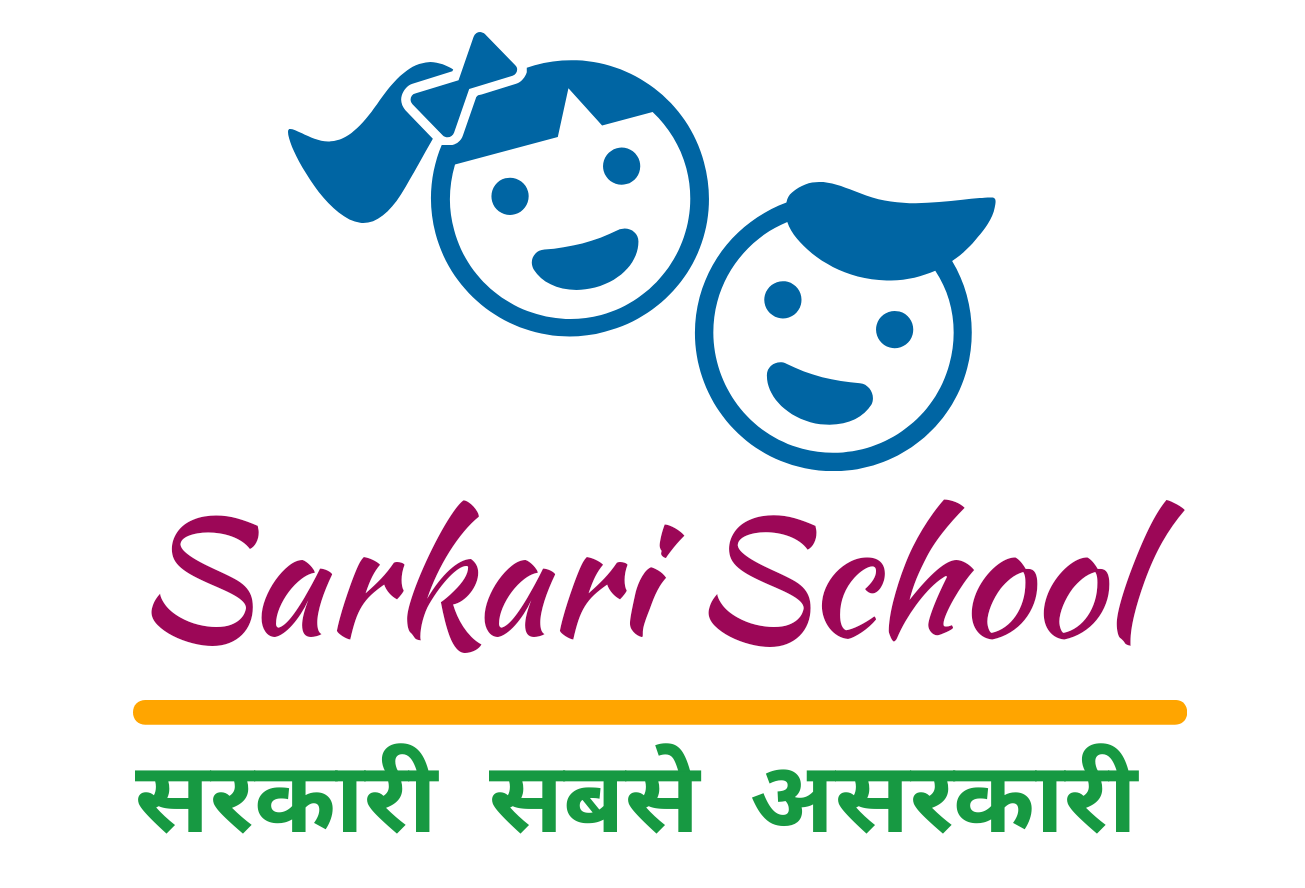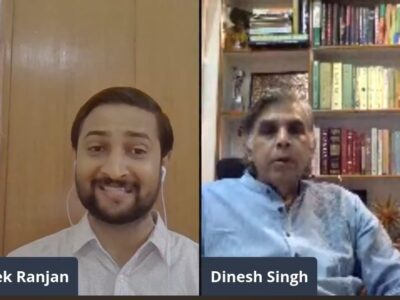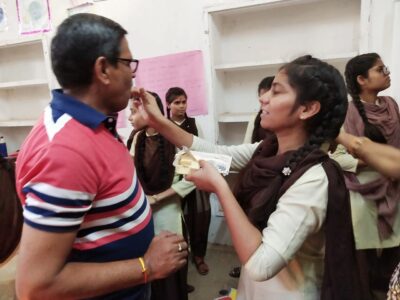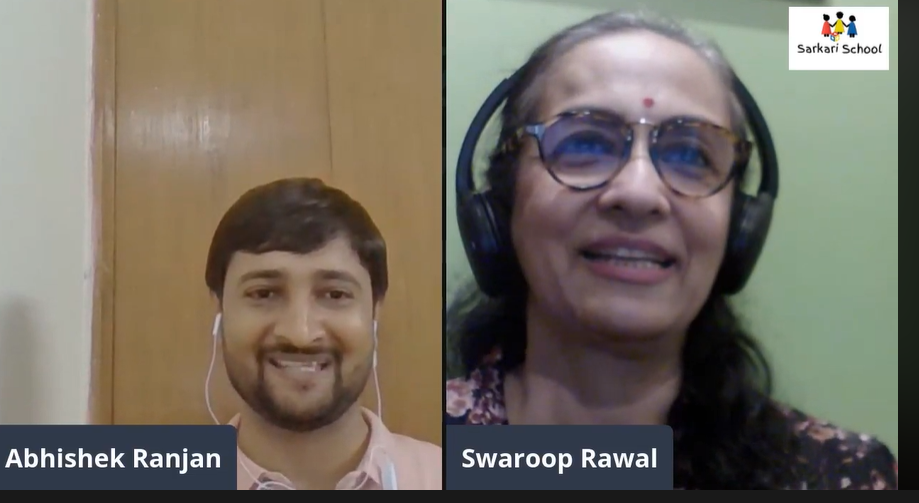
An Exclusive Interview with Dr Swaroop Rawal | Life Skill Education
When it comes to Humanity, no introduction is worth giving. But to give words to the feelings that embed in our hearts we collect gems to portray this introduction of Dr Swaroop Rawal.
A versatile personage, TV actress, former Miss India (1979), an acclaimed life skill educator and teacher trainer, finalist of Global Teacher Award-2019. She has been working in a unique area of the education system. Her motive is to teach students with life skills and drama along with classroom education. She has touched many lives across India. Her faith in being a true Indian has been reflected in her journey from 1998 and continued.
Do read an Exclusive Interview with Dr Swaroop Rawal by Abhishek Ranjan, Founder, SarkariSchool.in, where she talked about the importance of life skill education in Indian schools, ideal classroom, Global Teacher Prize and hope from New Education Policy (NEP).
Q.1. Having a great celebrity background and then turning to be a Teacher/educator, what actually led to this drastic change in your career?
Swaroop Rawal: At the age of 28 years, I got married to Mr. Paresh Rawal. We had a great life after that and then I chose to become a family person. We had 2 kids and I believed as all mothers do, I wanted to be with my children. So, I completely stopped working as a model/actress. And then suddenly I got a lot of free time. With the passing years, I engaged myself with school and children. I was the PTA chairperson at my kids’ school. When I first went to a school for teaching it turned out to be a Deaf and Dumb School, where there were many kinds of children some of them were physically challenged, some were mentally. I have never had the training and found it very difficult to teach those classes. But then I did a course and got the training, I learned how to tackle Special children. One of my trainers there, told me to take drama as a resource while teaching. I wasn’t sure to do that first, but then it got a huge change in the learnings of those children. For almost a year, those classes were life-changing for those children and for me as well. In the same year, I got an offer from the University of Wooster for my Ph.D. I did my research in the same area “How to use Drama to enhance life skills for children with learning disabilities”.
Q.2: As you hold a versatile experience of teaching in different types of schools, so what difference do you find in the classroom management system among private and government schools?.
Swaroop Rawal: There is a huge difference between Private and Government schools. There are immense facilities available in private schools whereas there are some Public schools in the remote areas of India that even do not have basic infrastructure. As from my list of teachers, those are currently teaching at Nandurbar, a very brilliant set of teachers but they teach under a tree. There is no classroom available for them, the children sit in the shade and learn. In the times of rain and harsh summer, they get into someone’s Hut but they never stop the education. You might’ve heard about the “Ekal Vidyalayas” where there is just a single teacher over many students having different age groups and for all subjects. Just a single person to teach a variety of things.
Q.3: We would like to know about the incident when you went for Global Teacher Award and you stated that “Indian Teacher struggles more than anyone else does all over the world.”
Swaroop Rawal: When I was there at the Global teacher Prize Finale, I met a lot of teachers out there, some of them shared their experience of teaching in wartime at Palestine. One of them had nothing, his own house was disrupted but he has adopted 6 children to fund their studies. His name was Lado from Georgia. One was from Africa who taught in very difficult circumstances. Even after listening to that, I realized that Indian Teachers have more struggles than all these. Like for example, the bus stop at Nandurbar is 1hr away from the actual place where the students are taught. And these teachers live there at village huts, they go to their homes for weekends and then come back and stay there at a village in the harsh climate and zero facilities, just to ensure the regular pace of education for tribal children. Our Teachers are working in very difficult situation. I believe that our teachers are best. They do so much of hard work, i don’t think anyone can else.
Q.4: What is the definition of an ideal classroom in your views?
Swaroop Rawal: I would like to talk about the physical structure first, people often ask this question to me that what all amenities I need, while teaching? And my answer remains the same every time, I just need a space and 40 to 50 students. I don’t need books or any props.
Secondly, the essence of the classroom, the environment should be democratic in nature, where students can participate, they should have the right to negotiate over the teaching style. I believe children are the final beneficiaries, they are the learner that’s why they should have the right. This should be their choice of how they want to learn. The combination of teacher’s play and child’s play should synchronize, then only it can yield the desired results.
Q.4: Your Journey was started from the Mental Health perspective, so my question is what is the need for mental health in education?
Swaroop Rawal: I have mentioned this statement that “I see my students/children’s back-breaking, by the load of books they are carrying” there are many teachers who use abusive languages for children and they hit them badly at some places. Also, if I highlight the condition of the girl students from my class, their mental conditions are so bad, they lack the confidence of speaking out their name aloud.
Mental health does not mean to cure the sane people, that actually means to make people aware of their self-confidence, empathy, harmony, critical thinking, creative ability, decision making and other aspects that actually make them Human.
Q.5: My next question is, why do you think that life skill education is very important?
Swaroop Rawal: See, Life skill is the base of every education system. But from my point of view life skill is equal to education, if this can be taught to everyone, it will be awesome! Because it consists of so many aspects of life like cognitive thinking, creativity, emotions, social aspects & everything that can be related to studies. Students will learn how to learn if they will have life skill training with studies.
Q.6: In one of your interviews, you have mentioned that Life skill education works for women upliftment and stops violence against women. Please explain!
Swaroop Rawal: This works in two aspects, for girl – it makes them strong and confident. From theboy’s side – it helps them understand that it’s okay to cry, to share thoughts, and it’s not okay to abuse, to hit people to be strong and make yourself uncomfortable. We make them understand the importance of Empathy. The art of being thankful, the art that makes you able to feel other’s situations, this skill increases the harmony among society and it actually reduces Violence.
We have Ritika & Chavi with us both are Government teachers, they are connected with their question regarding life skills.
Q.7: What could be the possible ways to take up Life skill training apart from classroom education?-
Ritika Tomar
(Teacher from Sonbhadra, Uttar Pradesh)
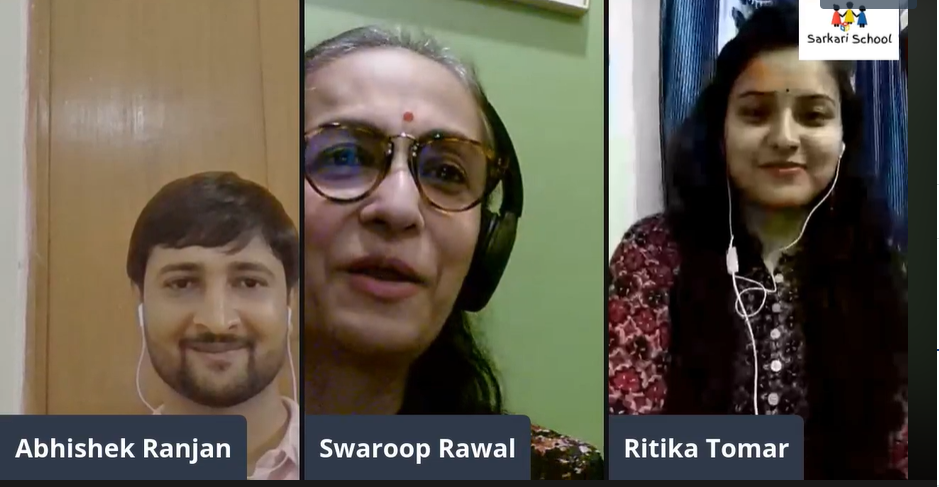
Swaroop Rawal: Life skill is something that can be taught anywhere any time, I have a teacher from my contact, he takes dual sessions for Lifeskills one in the classroom that is for the school children and another is at the weekend panchayats of the village, where all elderly people takes this training in order to form a tasteful society. I believe skill comes with learning and practising and it is essential for every aged person be it a child or an aged citizen.
Q.8: What is your philosophy/idea of being an effective teacher?
Chhavi Aggrawal
(Teacher from Varanasi, Uttar Pradesh)
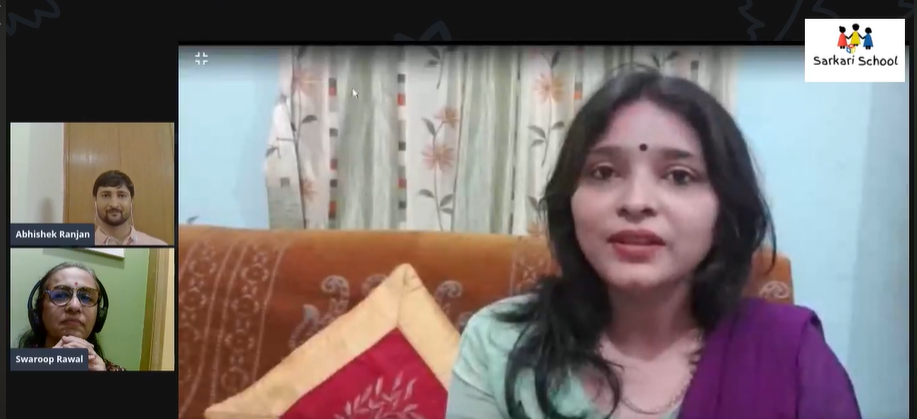
Swaroop Rawal: My way of Philosophy is a bit different; it is another way round actually. Because I’ve seen that we the teachers of India are doing an unjustified attempt with our profession, we actually spoon-feed the students, If I can explain it through words it’s like “Hum thali main khana paroste hai, Nivala todte hai or hum hi usko chabate hai, or fir vo niwala nikal k hum Bacho ko khilate hai.” – “We actually serve food on the plate, take the bite and then make students eat that bite taken out from our mouth” Can you relate to that. This is actually a banking education. Where the teacher being knowledge herself deposits that to the students, the student is not gaining/earning the knowledge by himself. My philosophy is education should be democratic and negotiated, there should be dialogues between students and teachers, students should be able to talk about his thoughts and ideas in the classroom itself. That can never be achieved through “rote learning” or “learning by heart”.
Q.9: While being a PhD scholar you’d created an ambition to change the lives of the children of your country, so what is your future plan for this goal?
Swaroop Rawal: Yes! I have this big dream and I am working solely in these areas and I know I will achieve it one day. I started in 2008 from LOC URI to Madurai, I’ve conducted educational training since then. In 2008 I met a very passionate and wonderful person, at Gujrat. He was then the Cheif Minister of Gujrat, and now he is Honorable Prime Minister of India, Mr Narendra Modi. After meeting him I decided to take up teacher’s training starting from Gujrat itself. The motive behind to reach more children through teachers. Leading to which I organized workshops with the association of UNICEF and Gujarat State government. We had training in around 5400 villages, where we taught girl child specifically. I had trained 250,000+ teachers in Gujrat itself. After all this, I am in the governing council of “Save the Children” NGO they are working in 10 states across India. We work with children in many ways directly and Indirectly.
Q.10: If life skill is so necessary, then why it is not included as a compulsory education curriculum?
Alka Madan
(Teacher at GGSSS Madina, Rohtak, Haryana)
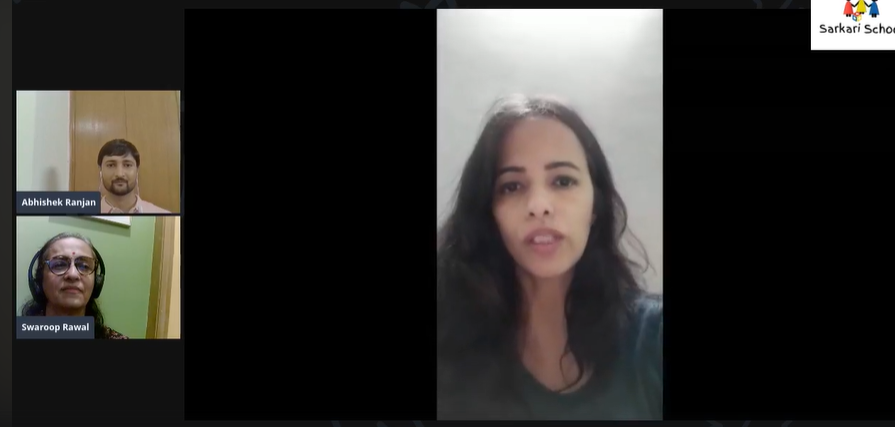
Swaroop Rawal: According to me this should be done before, but due to unstoppable circumstances the people in the system are not able to understand the importance of life skill education. A single teacher cannot teach everything, we need to have a separate program for life skill training as well. Even in my workshop, I do talk about integrating life skills with subject learning but we also have the concept of “stand-alone” where only Life skill is taught without integrating it with any subject.
Q.11: In the process of development of life skill, where should technology be used and where should it can be avoided?
Swaroop Rawal: As far as technology is concerned, I have used it for creating a circle. I am still connected to the teacher’s I’d met in 2008. We are still in touch through WhatsApp, Facebook, and Twitter. But for leaning I don’t think You need anything, just a plain classroom or an open area, you don’t need technology.
Q.12: Can you list 5 very important Life skills that are very essential for students?
Swaroop Rawal: no, it doesn’t work in this way. All Life skills are essential but to count the top on my list, I’ve
- Understanding and Managing Emotions
- Skills of Empathy
- Effective communication skills
- Understanding self
- Critical thinking
- Creative thinking
- Problem-solving
- Decision-making skills
These are the eight very important and must-have skills for students.
Q.13: Do you think the teachers of Tribal/rural government schools have the potential to win the Global Teacher’s Award?
Sashenka Hazarika,
The youngest recipient of National Teacher’s Award-2018 from Assam.
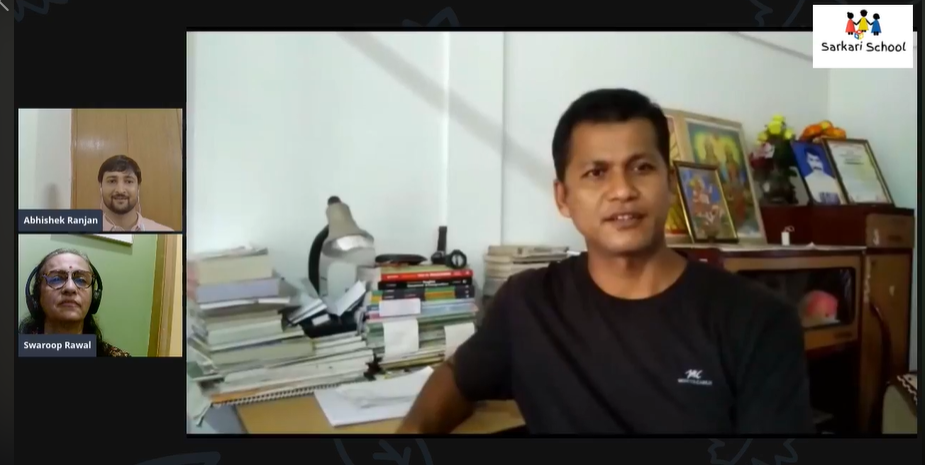
Swaroop Rawal: Of course! I have nominated 2 Government teachers this year. But this time I am not sure because of this current situation, but you can fill-up the form and can self-nominate yourself. Also, if you’ve won a National Award – there is nothing greater than that award. I would like to congratulate you on that. keep it up!
Q.13: Lastly, you have been advocating for life skill education for quite a long time, kindly share your key expectations from New education Policy?
Swaroop Rawal: It is very saddening to know that in the new education policy there are no additional aspects for life skill education separately, but a gist of all these skills are included on several variables. There is no specificity over experiential learning also, for example, I use Drama in education, that explains experiential learning.
Combining to all I would like to add that God has blessed humans with a rainbow of emotions that is from sadness to joy, then why are we just stuck upon Happiness. The other emotions are equally important in order to achieve contentment, it is not important to be happy only, it is important to be joyful, compassionate. And all this comes from Life skill training.
Q.14: My final question is a bit out of the topic, we all have seen your tremendous work regarding children and their upliftment. Please tell us where do you get the inspiration to work with this enthusiasm?
Swaroop Rawal: I think my inspiration comes from children of this country and my love for India. If I want to make a strong India and I know that will come from making the children of this nation, strong enough. So, they are my motivation and they are my inspiration.
©SARKARISCHOOL.IN | All Rights Reserved.
